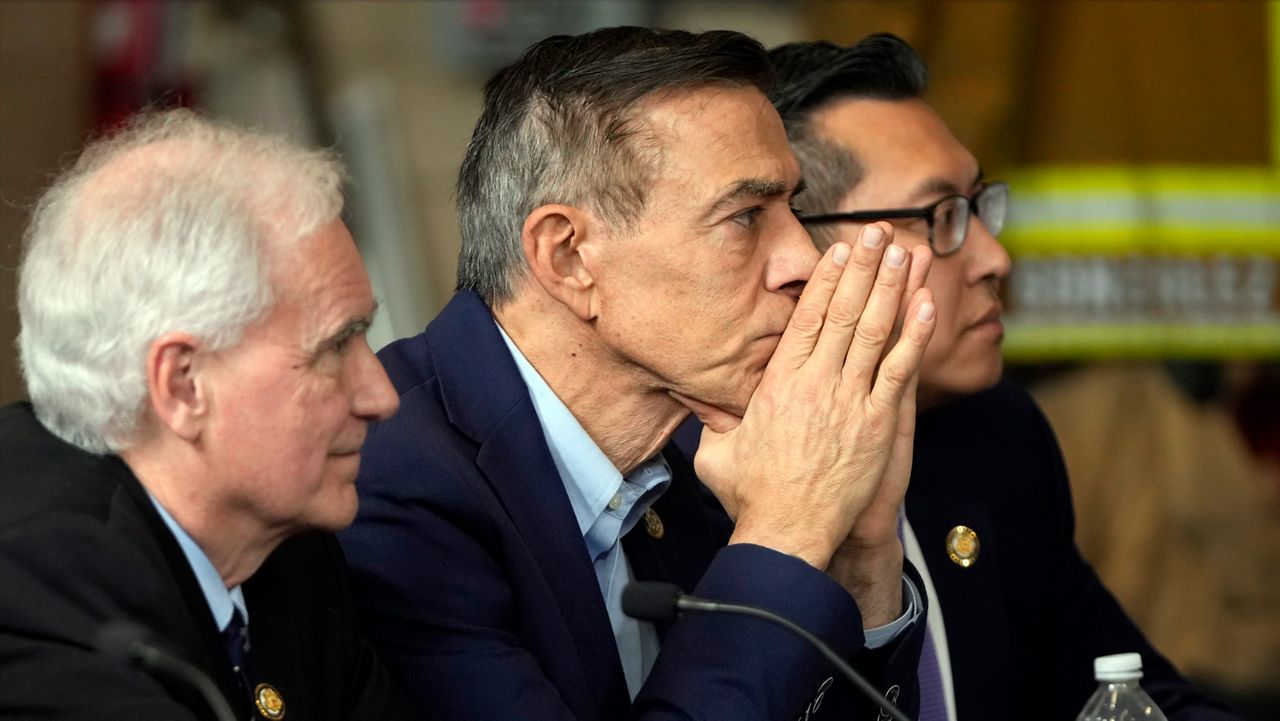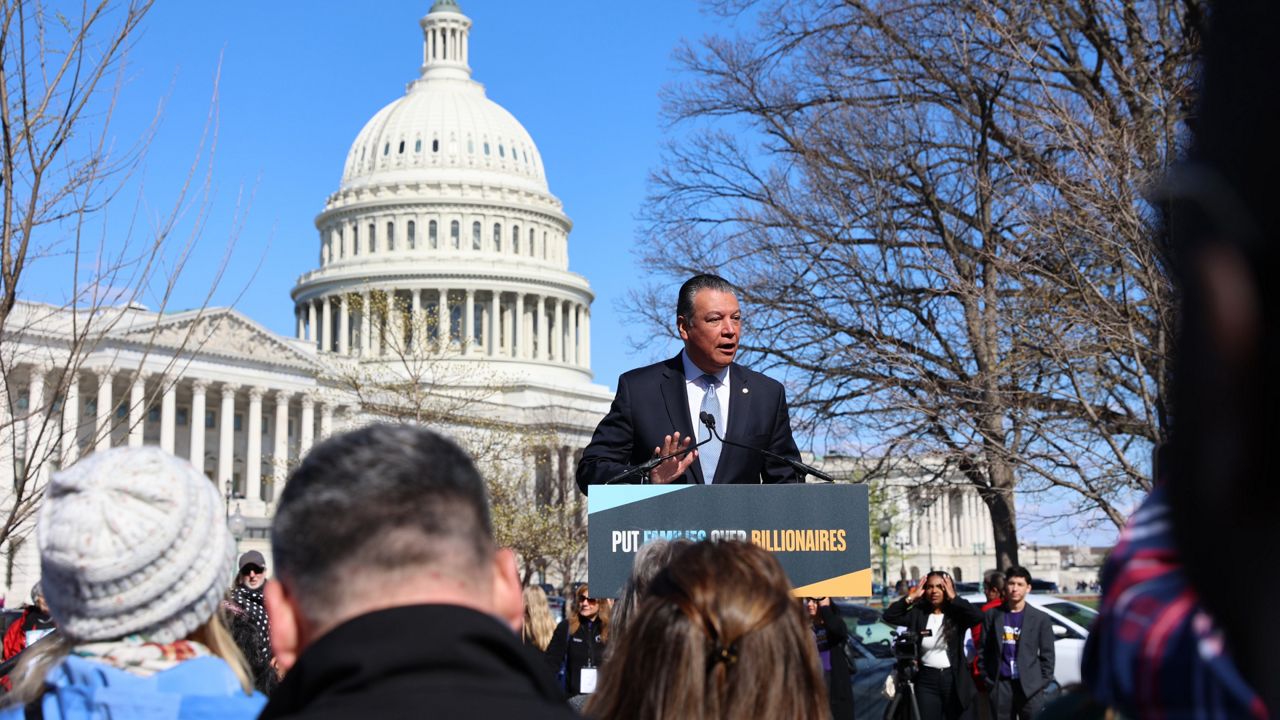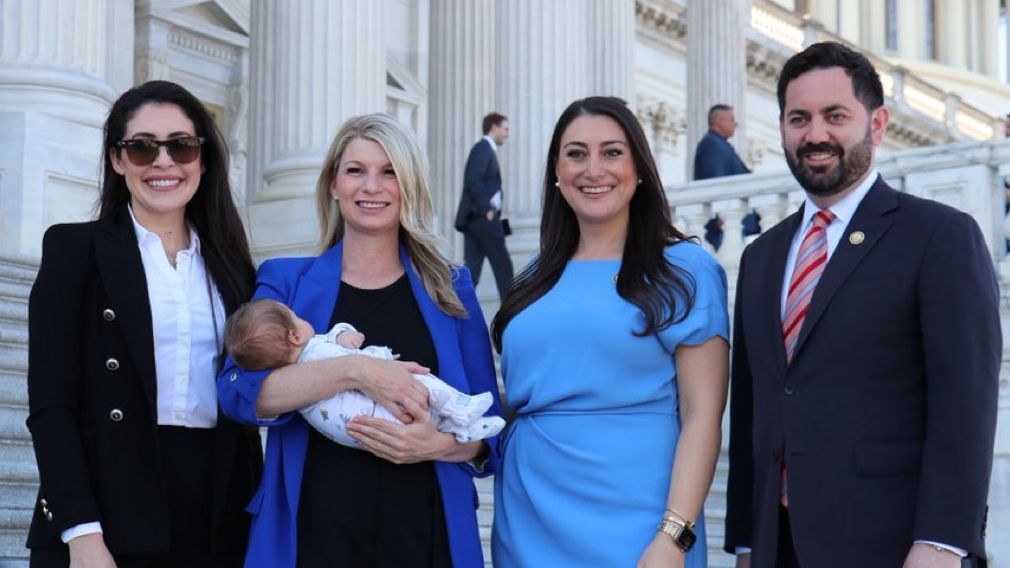What is reconciliation? Republicans plan to use it to pass Trump’s agenda
As Republicans in Congress begin trying to enact President Donald Trump’s tax and spending agenda, the word “reconciliation” has come up repeatedly.
But what exactly is reconciliation?
“This is a way to pass government funding bills without being subject to the filibuster, which is incredibly important in a polarized era when one party — Republicans right now — only have 53 votes where to get around the filibuster, they would need 60,” said Casey Burgat, Legislative Affairs Program Director at The George Washington University and author of “We Hold These Truths.”
Republicans used reconciliation in 2017 to pass President Trump’s tax agenda during his first term. After President Joe Biden took office, Democrats used reconciliation in 2021 to pass the American Rescue Plan, a massive COVID relief package, and the Inflation Reduction Act in 2022.
In each case, the White House and both chambers of Congress were controlled by the same party, leaving members of the minority party as bystanders — which is where Democrats find themselves this year.
But reconciliation has limits.
The legislation can only address revenues, mandatory spending, and the nation’s debt. It cannot be used for policy changes, such as trying to change the Social Security program.
The reconciliation process is already underway this year but is far from over.
House and Senate Republicans have each passed budget resolutions that mandate spending cuts, but the House is calling for $2 trillion in reductions over 10 years, which, according to the Congressional Budget Office, likely would require steep cuts to Medicaid.
Senate Republicans, however, are wary of cutting social safety programs too much. The upper chamber’s resolution calls for $660 billion in cuts, signaling it could be a tough negotiation process.
“Democrats are really counting on mostly the public pressure campaign that the decisions that the Republicans are threatening to make will be incredibly politically unpopular,” explained Burgat. “This is their one upshot right now of having no majorities in the House, Senate, and definitely not the White House: that this is a Republican bill. Any changes you see are Republican-driven. I don’t know if that’s going to work, but that’s all they have left right now, given that they allowed this to go through with Schumer and others breaking and allowing Republicans to start the reconciliation process.”
Earlier this month, Schumer and other caucus members lent their vote to break the filibuster and allow Republicans to pass a spending bill to keep the government open. This earned criticism from many rank-and-file House members who said they lost their only bargaining chip. Since their votes won’t be required under reconciliation, they have been shut out of any budget discussions.
Democrats are already working on a public pressure campaign to dial up anger among voters who would be impacted by these cuts — from rallies to town halls. House Minority Leader Rep. Hakeem Jeffries, D-N.Y., stoked the fire last week.
“Republicans are in a freefall right now. House Republicans fighting with Senate Republicans, Senate Republicans are fighting with House Republicans, House Republicans are fighting with each other because you’ve got a group of people who are uncomfortable with the fact that they were forced, as House Republicans in so-called swing districts, to vote for the largest Medicaid cut in American history,” said Jeffries. “We will not let the American people ever forget it.”
Over the next several days, House and Senate Republicans will try to negotiate a compromise to begin writing the legislation to make those cuts. House Speaker Mike Johnson has given a self-imposed deadline of Memorial Day to complete the budget resolution and send it to President Trump’s desk, giving Republicans just six weeks to act.












